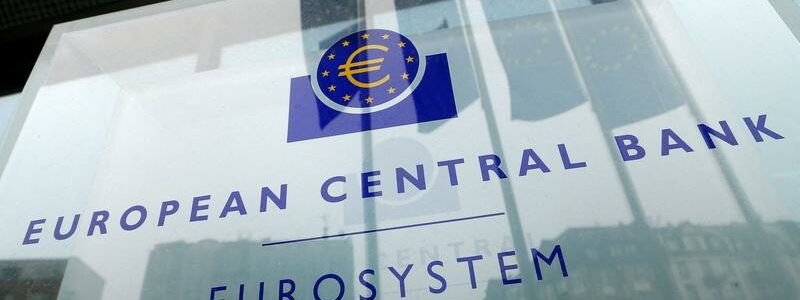
ECB confirms plans to end bonds buys in third quarter
FRANKFURT (Reuters) -The European Central Bank kept its policy stance broadly unchanged on Thursday, sticking to plans to slowly unwind extraordinary stimulus as worries over record-high inflation trump concerns about a war-related recession.
The ECB has been reducing the pace of money-printing for months but has only outlined a loose schedule to roll back support, emphasizing flexibility as the conflict in Ukraine and sky-high energy prices could suddenly change the outlook.
Confirming its earlier guidance, the ECB said it plans to cut bond purchases, commonly known as quantitative easing, this quarter, then end them at some point in the third quarter.
Interest rates will, however, only go up “some time” after the end of bond buys and they will be gradual, the ECB added.
“The Governing Council judged that the incoming data since its last meeting reinforce its expectation that net asset purchases under the APP should be concluded in the third quarter,” the ECB said in a statement.
The volume of bond buys in the third quarter, will be determined later.
Among the most cautious central banks in the world, the ECB is lagging far behind nearly all its major peers, many of which started raising rates last year. In the past two days alone, the central banks of Canada, South Korea and New Zealand have all increased the cost of borrowing. [TOP/CEN]
The U.S Federal Reserve is meanwhile expected to raise rates eight times or more over the next two years, leading the world in policy tightening.
“Any adjustments to the key ECB interest rates will take place some time after the end of the Governing Council’s net purchases under the APP and will be gradual,” the ECB added.
The ECB has bought nearly 5 trillion euros of public and private debt since 2015, all with the aim of rekindling inflation, which undershot the bank’s 2% target for years after the bloc’s debt crisis.
But inflation has unexpectedly shot up in recent months, leaving policymakers in a dilemma as they try to reconcile two opposing economic forces.
On the one hand, inflation is already at a record-high 7.5%, with further increases expected. On the other, the euro zone economy is now stagnating, at best, with the impact of the war hurting households and businesses across its 19 countries.
Prior to the meeting, a host of conservative policymakers, including the central bank governors of Germany, the Netherlands, Austria and Belgium have all made the case for rate rises, worried that high inflation could linger too long.
Adding to their hawkish case, longer-term inflation expectations, a key gauge for the credibility of policy, have moved decisively above the ECB’s 2% target, even though wages have yet to respond to higher prices.
Acknowledging these concerns, ECB President Christine Lagarde could still signal more firmly that support will be rolled back in the coming months.
Due to speak at 1230 GMT, she could indicate greater certainty that asset buys will indeed end next quarter, suggesting that the bank could be in position to contemplate an interest rate hike in the autumn.
The ECB maintained its formal guidance that any rate hike would happen “some time” after the end of bond purchases, a timeline it has said could mean weeks or months.
Markets are now pricing in a combined 70 basis points of hikes in the ECB’s minus 0.5% deposit rate this year, even though not one of the ECB’s 25 policymakers has called for such aggressive tightening.
Fuelling policymakers’ caution is the economic outlook, which is deteriorating quickly.
Energy prices driven higher by the Ukraine war are draining household savings and uncertainty caused by the conflict is halting corporate investment. Banks are also tightening access to credit as they naturally do during wars, potentially exacerbating the downturn.
Policy doves, meanwhile, argue that most of the inflation is a result of external supply shocks, so that inflation will naturally fall over time.
In fact, high energy prices tend to be deflationary over the longer term because they hold back growth, so there is a risk that euro zone inflation will once again fall too low.
Weighing the two opposing forces, the ECB is likely to argue that inflation – its key policy objective – is the greater risk, although policymakers will continue to make incremental changes and stand ready to change course at short notice.
Source: Read Full Article